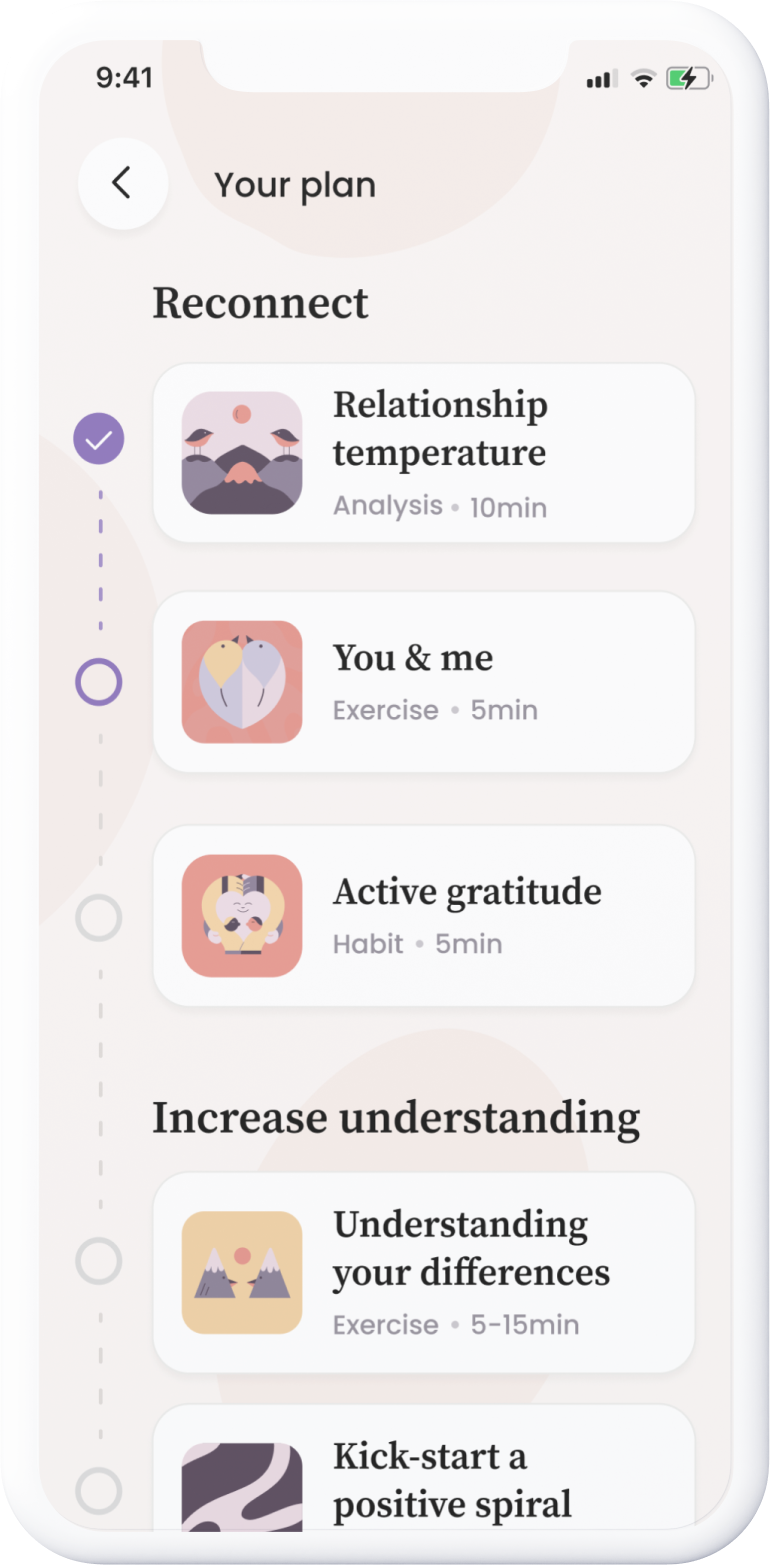Low Sex Drive in Women
What affects your sex drive and how can you increase it?- 8 April 2024
- 11min

Are you experiencing a low sex drive? Are you a woman looking to increase your sex drive? Losing interest in sex during certain periods is neither strange or uncommon; it happens to most people - especially women.
There are several reasons commonly associated with low sex drive in women, such as stress, menopause, recently giving birth, medication/birth control, or challenges and lack of trust in the relationship. But many with low sex drive have much to gain from understanding more about how desire and pleasure actually work. Because just as there are things that inhibit our sex drive, there are also things that increases it!
Desire or pleasure – which comes first?
If you're experiencing a low sex drive and want to increase it, it's important to understand more about how the sex drive for women works – on a general level and individually for you. Does the desire for sex come first, or the experience of pleasure? Yes, how does your sex drive actually work?
In our culture, we have an image of sexual desire as something that arises spontaneously, and that desire drives us to be sexually active. And indeed, for some, that's how it is. But for most of us humans, desire works differently in long-term relationships.
This is usually described as spontaneous versus responsive desire. Unlike spontaneous desire, which involves the urge for sex arising spontaneously, responsive desire means that desire comes to life when we actually experience things that give us pleasure. It can be when our partner gently strokes us or when we lie naked together. So, desire comes to life from enjoyable activities; the more moments of pleasure, the more desire is created.
Research shows that on a group level, it's more common for women to have responsive desire, but there are also many women with spontaneous desire and many men with responsive desire. One isn't more right or more normal than the other. It can also vary over time.
In connection with falling in love, hormones are released in the body that make us more prone to experience spontaneous desire – so if you were eager for most things in the beginning of the relationship but now feel that your sex drive is low, it's not strange at all.
Reflection questions
Do you feel a low sex drive? How is it for you, is your desire spontaneous or responsive? How do you think it is for your partner? And has it changed throughout your relationship history?
Desire's accelerator and brake
Our sex drive is influenced by two different systems in the body, the accelerator and the brake. Imagine you're a car. You have the accelerator that makes you accelerate and move forward. And then you have the brake, which slows you down and keeps you still. The accelerator and the brake are two different systems that you work with simultaneously when you drive. Similarly to how our sex drive works!
Let's start with the accelerator
Your brain is constantly scanning the environment for signals that it's time for sex. Anything that reminds us of sex or can be interpreted as a sign that it's time for sex is like pressing the gas pedal. And just like cars, we humans are different! Some cars accelerate quickly and easily. Others are slower to start. One isn't better or worse, just different.
And the brake?
At the same time, your brain is also scanning the environment for reasons NOT to get aroused. It could be fear of getting pregnant, or discomfort (or pain!) associated with it. Or that your children might hear or come in. Or that your partner might not think it's "good" enough, that there's a bunch of dishes in the kitchen, that you're completely exhausted, that you're not entirely comfortable with your body, or not convinced that your partner loves your body...
Releasing the brakes is often more important than pressing the gas pedal more
The most common thing when we struggle to find our sex drive is that we ourselves – or our partner! – work on the accelerator. What do you like? What do you want me to do? Look, flowers! Have you ever tried driving with the handbrake on? The reason so many attempts to accelerate libido end in resignation or frustration is the fact that we often have too much braking rather than too little gas.
How do you release the brakes?
Sex educator Emily Nagoski says:
1. Reduce stress
2. Increase affection (in your relationship and towards your own body)
3. Try to let go of the idea of how your sex drive "should" work
Not easy, of course, but knowledge about your sex drive is an important first step. Ultimately, it's about being present and enjoying sensory experiences (and, of course, that sensory experiences are enjoyable). And to be able to do that, you need to be in an environment that allows it.
Sex drive in women - The context's significance
To understand what accelerates or brakes our sex drive, we need to understand the role of context. Unfortunately, it's not as simple as what makes us aroused in one situation, always does. And there may be contextual factors that are important to know to understand why you currently have a low sex drive and what you can do to increase it.
When you're calm, content, and secure, you will interpret almost anything with curiosity and interest – you will want to approach it (for example, your partner). In that situation, it's easy to reach the gas pedal and get an acceleration.
If you instead feel stressed, inadequate, or insecure, you will, on the other hand, interpret almost anything as threatening or negative. Signals that would have triggered your sex drive to approach in another situation will suddenly only make you irritated or make you want to withdraw.
Do you recognise reacting differently to, for example, your partner's touch depending on what mood you're in? A caress can be lovely, but it can also not be – if you're annoyed with your partner or very stressed about an important thing at work, it may instead make you... angry?
The context you find yourself in consists of two parts:
1. Situational factors: where are you, with whom, is the person friendly, warm, loving, is it a completely new situation, or do you feel safe in it, is it messy?
2. Your inner state at the moment: are you relaxed or stressed, do you trust your partner, are you warm, or are you hungry, tired, or have pain somewhere?
Research clearly indicates that, at a group level, sex drives for women are more sensitive to contextual factors, but also that women vary more individually in this regard.
How can you increase sex drive through the context?
So, the key to your sexual accelerator is to create an environment where your (and your partner's) brain interprets the world as a safe, secure, and pleasurable place where sex has space.
For most people, this means three things:
1. Low stress
2. Strong affection
3. Strong trust
If your relationship is characterised by this, you have a good foundation to start from!
To increase low sex drive for women, there are two more keys:
1. Know yourself. Find out what triggers your accelerator, your brake, and
the contextual factors that affect you the most. What do you like? What do you need?
2. Love yourself. Relate to what you've discovered about yourself with openness and warmth. You might wish you could ignore all the things that break your sex drive, but we promise you, it doesn't work.
This doesn't mean you should buy into the messages from the brakes outright, just that you should dare to approach them, explore them with a gentle gaze.
Factors that can increase low sex drive for women
When you reflect on what accelerates and brakes your sex drive, it can sometimes also be helpful to hear about others' experiences regarding what promotes desire. How to contribute to creating an environment where the brain interprets the world as a safe and pleasurable place where sex has space.
Here are some examples of factors that can increase sex drive (and where the opposite can mean low sex drive in women):
- Feeling loved and emotionally close to your partner, feeling supported or particularly noticed by your partner. It often involves concrete actions, like your partner taking the time to listen to how your day was and encouraging you to do what you need. The more such actions, the stronger the feeling of actually being loved and feeling important.
- Factors more clearly linked to eroticism and sex. It can be situations that don't directly involve the partner, like watching a sex scene in a movie or reading an erotic story. But it also involves, for example, noticing that your partner gets aroused by you or receiving a text from your partner about how turned on they are by you.
- Seeing your partner from a distance, perhaps in a cheerful conversation with others or wearing an outfit you particularly like. It can also be about seeing your partner in an environment where they feel at home, like in their professional role or in a sports context.
- Intimacy and closeness (that isn't directly sexual), like dancing or taking a shower together. It can also be more emotional intimacy, like being in a romantic setting together.
Do you recognise yourself in any of these? Is there any opportunity to increase the chances of ending up in situations where these factors occur?
It's important to consider that even being apart from each other can contribute to increased sex drive. Maybe it's not more cosy evenings on the couch you need right now, but rather each of you going out alone for a night. Seeing your partner dress up and put on perfume to go out and meet a friend can increase your own sex drive. Or maybe you need to watch more TV series with erotic elements? Or make sure to invite each other to a long shower together more often? Try to have an experimental attitude towards it, to increase your sex drive and see what happens!








